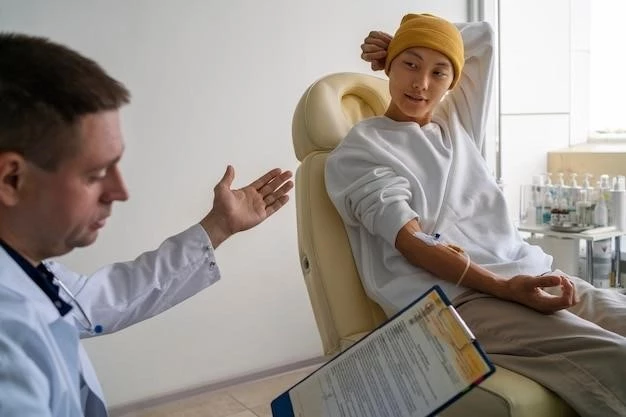Understanding Giedion Syndrome
Giedion syndrome is a rare genetic disorder characterized by skeletal abnormalities, distinct facial features, intellectual disability, and growth retardation. This article aims to provide an in-depth understanding of Giedion syndrome, covering its causes, symptoms, diagnosis, treatment, prognosis, and quality of life impact.
Introduction to Giedion Syndrome
Giedion syndrome, also known as Giedion-Feingold syndrome, is a rare genetic disorder that falls under the umbrella of skeletal dysplasias. This condition was first described by Swiss physicians Andreas Giedion and Ursula Feingold in 1966. It is characterized by a unique combination of skeletal abnormalities, distinct facial features, growth retardation, intellectual disability, and other associated health issues.
Individuals with Giedion syndrome often exhibit a specific set of clinical features that distinguish it from other genetic disorders. Understanding the underlying causes, symptoms, diagnosis, and management of Giedion syndrome is crucial for providing comprehensive care to affected individuals and their families.
As a result of the mutations in the SOST gene, which plays a critical role in the regulation of bone growth and density, individuals with Giedion syndrome experience various skeletal abnormalities and developmental delays. The impact of these genetic mutations extends beyond the physical characteristics, affecting the overall health and well-being of those diagnosed with the condition.
Despite the challenges posed by Giedion syndrome, advancements in medical research and genetic testing have improved our understanding of the condition. Early diagnosis and intervention can help address the medical needs of individuals with Giedion syndrome and enhance their quality of life.
Causes and Genetic Background
Giedion syndrome is primarily caused by mutations in the SOST gene, which is located on chromosome 17. The SOST gene provides instructions for producing a protein called sclerostin, which plays a crucial role in bone development and maintenance. Mutations in this gene lead to an overproduction or dysfunction of sclerostin, resulting in the skeletal abnormalities seen in individuals with Giedion syndrome.
The autosomal dominant inheritance pattern of Giedion syndrome means that a mutation in one copy of the SOST gene is sufficient to cause the condition. In some cases, the mutations arise spontaneously, with no family history of the syndrome. Genetic testing is essential for confirming the presence of SOST gene mutations in individuals suspected of having Giedion syndrome.
Research into the genetic background of Giedion syndrome continues to provide insights into the mechanisms underlying the disorder. Understanding the specific genetic alterations that give rise to the syndrome is key to developing targeted therapies and improving management strategies for affected individuals.
While the precise ways in which SOST gene mutations lead to the characteristic features of Giedion syndrome are still being elucidated, the link between altered sclerostin levels and bone abnormalities is clear. The impact of these genetic changes extends beyond the skeletal system, influencing multiple aspects of growth and development in affected individuals.
Symptoms and Clinical Presentation
Giedion syndrome is characterized by a range of symptoms that affect various systems of the body. Individuals with this genetic disorder often exhibit distinct facial features, including a prominent forehead, wide nasal bridge, shallow eye sockets, and a broad nasal tip. These facial characteristics can aid in the clinical diagnosis of Giedion syndrome.
Skeletal abnormalities are a hallmark feature of Giedion syndrome, with individuals presenting with short stature, mesomelic dysplasia (shortening of the middle segments of limbs), and micromelia (short limbs). Radiographic findings may show platyspondyly (flattened vertebrae), metaphyseal irregularities, and osteosclerosis (increased bone density).
In addition to the physical symptoms, individuals with Giedion syndrome may experience developmental delays, intellectual disability, and speech and language impairments. The combination of skeletal issues and cognitive challenges can impact the daily functioning and quality of life of affected individuals.
Other common features of Giedion syndrome include dental anomalies, hearing loss, cardiac abnormalities, and genitourinary anomalies. The variability in symptom presentation and severity among individuals with Giedion syndrome underscores the importance of comprehensive medical evaluation and multidisciplinary care.
Given the complexity of symptoms associated with Giedion syndrome, a holistic approach to management that addresses the medical, developmental, and social needs of individuals with the condition is essential. Early intervention and ongoing support can help optimize outcomes and enhance the well-being of those affected by Giedion syndrome.
Diagnosis of Giedion Syndrome
Diagnosing Giedion syndrome typically involves a combination of clinical evaluation, imaging studies, and genetic testing. The presence of characteristic facial features, skeletal abnormalities, and developmental delays can raise suspicion for the condition and prompt further investigation.
Radiographic imaging, such as X-rays and bone scans, can reveal the specific skeletal anomalies associated with Giedion syndrome, including platyspondyly, metaphyseal irregularities, and osteosclerosis. These findings can support the clinical diagnosis and guide treatment planning.
Genetic testing is a crucial component of the diagnostic process for Giedion syndrome. Identifying mutations in the SOST gene confirms the molecular basis of the condition and helps differentiate it from other genetic disorders with similar presentations. Genetic counseling is often recommended for families undergoing testing.
Because Giedion syndrome is rare and its symptoms can overlap with those of other skeletal dysplasias, a multidisciplinary approach involving specialists such as geneticists, orthopedic surgeons, and developmental pediatricians may be necessary for accurate diagnosis and comprehensive care.
Early diagnosis of Giedion syndrome is essential for implementing appropriate interventions and support services to address the diverse needs of affected individuals. By establishing a clear diagnosis, healthcare providers can tailor treatment plans to target the specific challenges associated with this complex genetic disorder.
Treatment and Management
The management of Giedion syndrome focuses on addressing the specific symptoms and challenges faced by individuals with the condition. While there is no cure for Giedion syndrome, various interventions and supportive therapies can help optimize the health and well-being of affected individuals.
Orthopedic interventions are often recommended to manage the skeletal abnormalities associated with Giedion syndrome. These may include physical therapy to improve mobility, orthotic devices to support limb alignment, and surgical procedures to address severe bone deformities or growth discrepancies.
Early intervention programs that target developmental delays, speech and language impairments, and intellectual disabilities can help individuals with Giedion syndrome reach their full potential. Specialized educational programs and therapies tailored to the unique needs of each individual can enhance overall quality of life.
Regular monitoring by a multidisciplinary healthcare team is essential in managing the complex health issues related to Giedion syndrome. Close follow-up allows for timely adjustments to treatment plans and the identification of any emerging medical concerns that may require intervention.
Genetic counseling plays a vital role in supporting families affected by Giedion syndrome. Providing information about the genetic basis of the condition, discussing inheritance patterns, and offering guidance on family planning can help families make informed decisions and access the necessary support services.
While the management of Giedion syndrome may be challenging due to its multifaceted nature, a comprehensive and compassionate approach that addresses both the medical and psychosocial needs of individuals with the condition can make a significant difference in their quality of life.
Prognosis and Quality of Life

The prognosis for individuals with Giedion syndrome can vary depending on the severity of symptoms and the presence of associated health complications. While the condition is lifelong and requires ongoing management, early diagnosis and comprehensive care can positively impact the long-term outcomes for affected individuals.
Individuals with Giedion syndrome may face challenges in mobility, communication, and cognitive development, which can impact their overall quality of life. However, with appropriate interventions and support, many individuals can lead fulfilling lives and participate in daily activities to the best of their abilities.
Regular monitoring of skeletal health, developmental progress, and overall well-being is essential in managing Giedion syndrome and addressing any emerging issues promptly. By staying vigilant and responsive to changing needs, healthcare providers can help optimize the quality of life for individuals with the condition.
Access to supportive services, such as physical therapy, occupational therapy, and speech therapy, can play a significant role in enhancing the functional abilities and independence of individuals with Giedion syndrome. These therapies aim to improve mobility, communication skills, and activities of daily living.
Genetic advances and ongoing research into the underlying mechanisms of Giedion syndrome hold promise for future treatments and interventions that target the specific genetic pathways implicated in the disorder. By further understanding the genetic basis of Giedion syndrome, researchers may uncover new opportunities for therapeutic development.
Ultimately, a holistic and individualized approach to care that considers the unique needs and strengths of each person with Giedion syndrome is essential for promoting a positive prognosis and maximizing quality of life. By providing comprehensive support and fostering a supportive environment, individuals with Giedion syndrome can thrive and overcome challenges to lead fulfilling lives.
